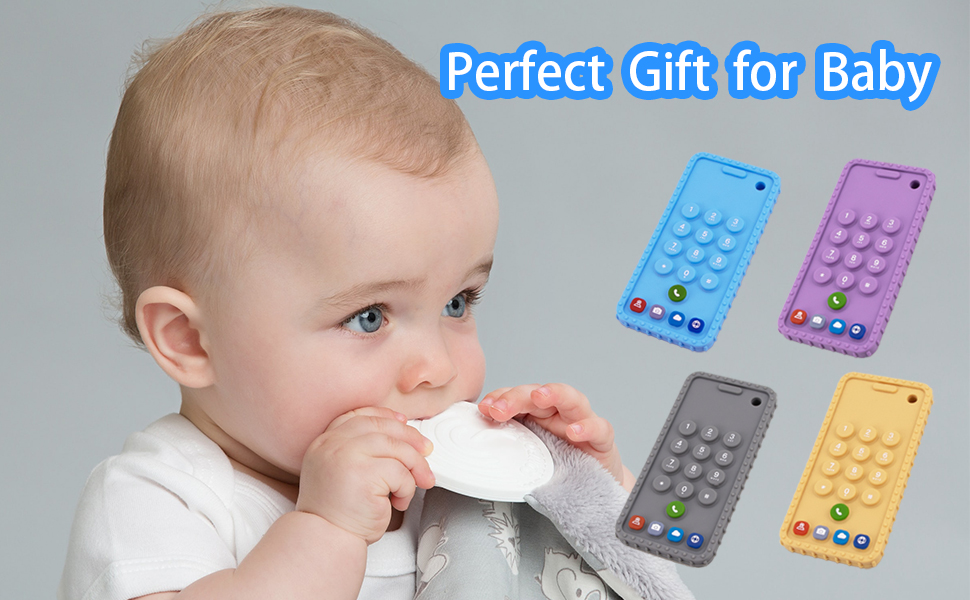
Hello Dear Reader!
I am re-pondering those cell phone teething toys. Since last post, I discovered cell phone pacifiers and teething toys in the shape of game consoles and remotes. Even one company shows a baby asleep with his remote beside him.
Here is what hit me the hardest:
Besosay Toys manufactured by Shenzhen Yifan Gifts Co., Ltd writes this in their Amazon ad:
Perfect Companion for Breastfeeding Babies
This baby phone shaped teething toy acts as a companion for breastfeeding babies. No matter traveling, bath time, bed time, it helps to keep our babies entertained for hours.
When I read this pop-propaganda, I wept. The potential damage goes way beyond infancy, as we know. My anger raged in the last post, now it’s full throttle sadness. The poet David Whyte says weeping “is a state of temporary enlightenment: the physically felt edge between a previously fixed presence and the sudden traumatic transformation of that fixedness, into movement, into acknowledgment, into a grief that has until now, been kept at bay.”
If tears can bring us temporary enlightenment, then let’s flood our cities with them.
Our babies deserve so, so much better. And parents deserve so much better, too. In fact, parents are the only people who have the right to be the architects of the parent-child relationship.
But how do parents have a fighting chance with the tech tsunami engulfing almost every aspect of family life now? How do moms and dad stay relevant in our tech obsessed world?
When I consider these questions with no clear answers and so much uncertainty, I weep some more.
And then the teacher in me want to explain and help as much as I can:
The perfect companion for breastfeeding babies are mommies—as we know. Mommies who look into baby’s eyes as baby relaxes into the warmth, felt love oozing out of every pore. Baby needs no other distraction. In fact, anything else interferes with the resonant energy that they experience together, bonding in perfect harmony. No words need be said. But sometimes when Mommy has the energy, she talks, or coos, or hums, or maybe even sings. They hold hands or baby holds on to her shirt. Familiar touch with reassuring voice, calming, comforting and acknowledging, “I am here, with you and for you. Always.”
Yes, that could be a picture of me breastfeeding—but back then, I didn’t have any temptation to look elsewhere but on baby’s face. Baby didn’t have anywhere else to look but on may face or around my face. I was content to have baby in my arms and baby was content to be there. Neither one of us didn’t need anything else. We had each other and that was enough.
Now, things are much different. And I experienced how different, up close and personal a few months ago. The first time I gave my infant grandson his bottle with my son and daughter-in-law gone, I had my cell phone on the couch next to me in case they called to check in or in case I needed to contact them with a question. I wanted everything to go smoothly this first time. And what I noticed surprised me. As baby was drifting off to sleep, I reached for my cell phone. Wait a minute! I don’t need to call the parents. What am I doing? Indeed, what am I doing? The urge to check my phone remained constant the whole time I gave him the bottle, even though my phone is not constantly in my presences as it might be for many new parents. I use it sporadically, yet that urge to grab it remained persistent.
Humans are vulnerable to habitual behaviors. Sometimes even sporadic habits make a groove in brain cells…I think about craving a piece of chocolate—not after all meals, but sometimes…and that urge is strong!
The cell phone has become a constant companion. With that add on how the tech industry normalizes their use—even with infants and we get the dilemma, I have thought about every day since 1987. Currently I have structed the dilemma this way, but I know I am missing many parts—it’s complicated. But presently:
How to help parents meet their children’s and teens’ developmental needs when overuse of screens pushed by the tech industry thwarts those efforts at every turn? While…
The tech industry normalizes, makes benign, dangerous screen habits…And
Parents are increasingly stressed and overwhelmed, craving more than ever a respite from engaging with baby or keeping a toddler busy, or tired of helping with homework, or burned out fighting with a teen…So…
the tech industry in normalizing dangerous screen practices, provides comfort to harassed parents seeking quick solutions…They basically convince: “No problem there, parents!…a toy replica of a cell phone is actually the perfect companion for your baby.” Of course, no mention of how human brains understand symbolic images and how they influence what humans essentially consider meaningful, especially when presented to the most vulnerable brains at the beginning of life on this planet…but then the tech industry may know this and certainly keeps this a big secret from parents…which leads to…
Ill-informed parents—not by any fault of theirs, for sure, resulting in…
Parents who by default give up their personal power and self-agency to the tech elite, unconsciously and unwittingly…the end result…
Well, we are seeing it; experiencing it every day in our homes and in our schools…humans, children and adults, victims of a tech ecology influencing not only daily decisions, but who they think they are and who they understand themselves to become.
Where to begin to thwart this nefarious progression? I say: Anywhere we are led to!
For me, I think these four roads could help us travel to our destination of wise humane use of technology:
1. Accurate information about what little and growing humans actually need to thrive before their brains are fully developed at age 26. Center on the Developing Child at Harvard University is a great place to begin.
2. Conversations with others concerned about turning this ship around. Especially considering how to help parents with this necessary, yet sometimes inconvenient truth: The less screen time in childhood, the easier it is to meet children’s and teens’ developmental needs. When developmental needs are met, the children and teens have a much better chance to grow into adults capable of controlling all forms of technology and using it wisely for the betterment of themselves and all of humanity
3. Supporting parents to reduce their stress and activate their innate creativity, so they can provide more 3D activities and experiences for their youngsters and teens—and then screen entertainment is not the automatic go-to. YEAH!
4. And finally, and what I believe can be most significant because humans move toward the vision/images most predominant in their minds: Create a vision of what you want. A vision of the AI world we want our children to live in. A vision of our communities thriving in a tech-centric world. A family vision of our preferred future for using technology to flourish and grow every family member’s human and divine potential.
With a vision, we have a fighting chance to remember Mommies are the perfect companions for breastfeeding babies.
Copyright, Gloria DeGaetano, 2025. All rights reserved.
PATTERNS OVER TIME
10 VISUALIZATIONS FOR PARENTS
Release worries to discover more clam and conviction.
Tap into your mental imagery powers to parent with more ease and joy.
Center yourself in your values and parenting priorities.
Use your creative energy at full throttle.

What Calling Keeps Calling You?

The MOST IMPERFECT Baby Gift
